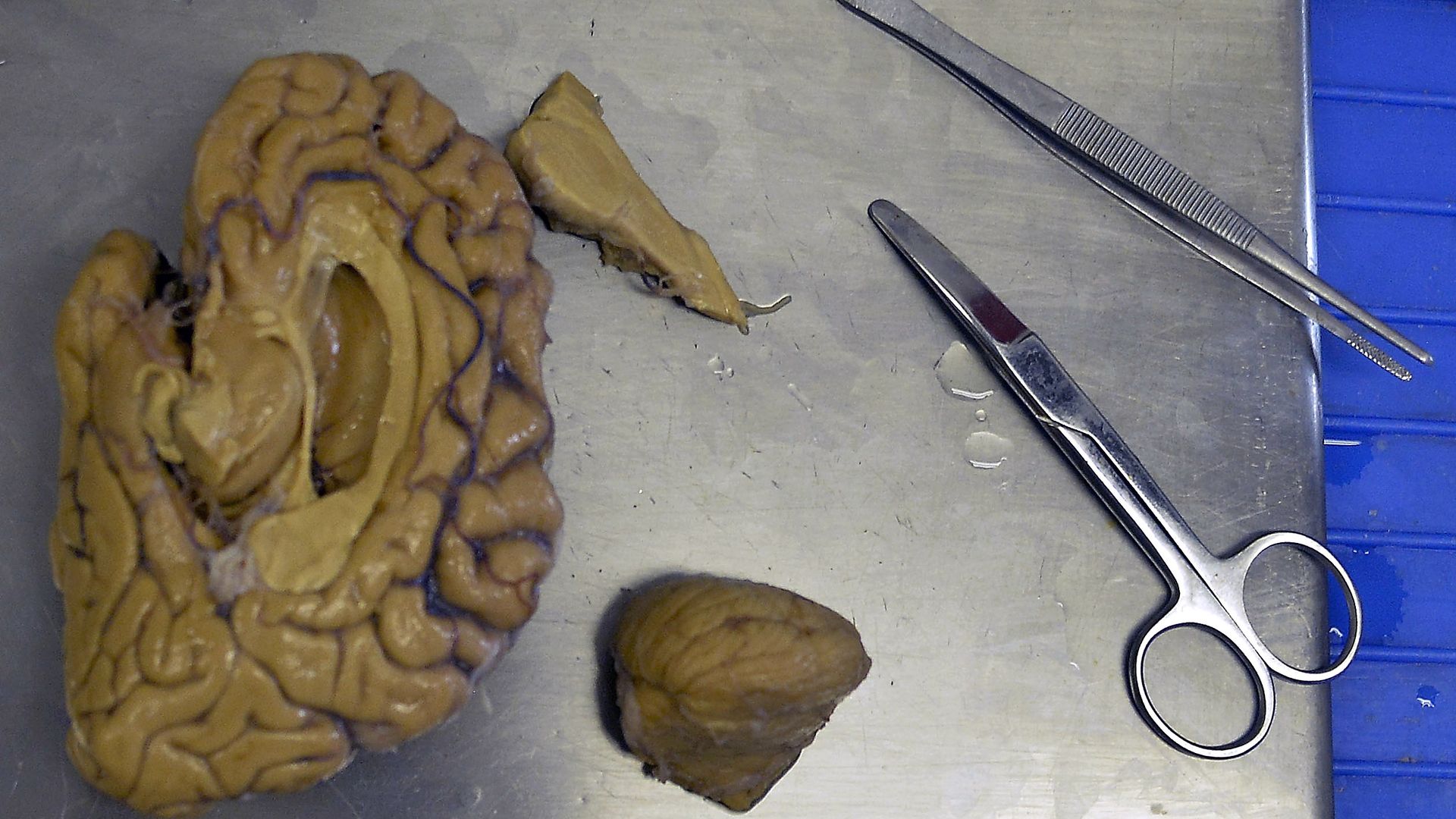Hispanic Heritage: How a Colombian neurosurgeon saved our brains
Add Axios as your preferred source to
see more of our stories on Google.

View of a brain section at the laboratory in Medellin, Colombia. Photo: Raul Arboleda/AFP via Getty Images
A Colombian neurosurgeon is responsible for discovering that some dementias once considered to be simply senility could be successfully treated.
Why it matters: Salomón Hakim provided the annals of neurology with one of the most original bodies of research by developing the concept of normal pressure hydrocephalus. His findings changed the study of dementia.
Details: Born to a family of Lebanese immigrants in 1922, Hakim became a neurosurgeon after studying in Bogotá. He accepted a fellowship in the U.S. in the 1950s while he focused on the mystery of dementia.
- While working at the San Juan de Dios Hospital in Colombia in 1957, Hakim first encountered the condition he originally named symptomatic occult hydrocephalus.
- A 16-year-old comatose male patient suffered from a severe head injury in an automotive accident. Blood began pooling on the surface of the brain and had to be drained.
- Surgery did not improve the patient's condition. He found that the patient was suffering from a condition now known as normal pressure hydrocephalus (NPH).
What it means: NPH is brain disorder in which excess cerebrospinal fluid accumulates in the brain's ventricles, a network of cavities inside the brain filled with fluid, causing thinking and reasoning problems.
- It also results in difficulty walking and loss of bladder control.
Hakim proposed treating patients by taking some cerebrospinal fluid (CSF) from the patients with NPH as he had treated the young head injury patient.
The intrigue: Hakim's work fundamentally changed the quality of life for millions of elderly patients across the world.
- He became a neurosurgeon superstar, invited to speak across the globe about his work on the brain.
Don't forget: Alzheimer’s among U.S. Latinos is forecast to grow almost 600% in the next 25 years, but they’re chronically under-enrolled in clinical trials of drugs to treat the disease, according to the National Institutes of Health.
- U.S. Latinos are more likely to have Alzheimer’s or other forms of dementia than white non-Hispanics, according to the organization UsAgainstAlzheimer’s.
